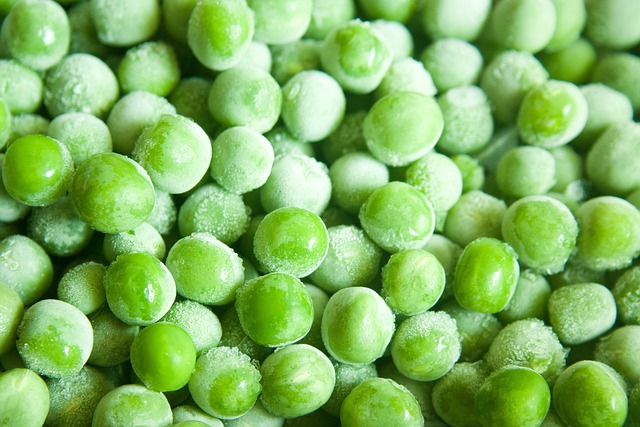Iguanas are intriguing creatures that have become increasingly popular as pets recently. But, if you’re considering adding an iguana to your family, you may wonder what kind of diet these reptiles require. Iguanas are primarily herbivorous, meaning their diet consists mainly of plants. But can they eat frozen vegetables? Let’s find out.
Can Iguanas eat frozen Veg?
Iguanas are tropical animals, so they naturally prefer their food to be on the warm side.
However, they will occasionally eat frozen vegetables if they are available. Iguanas typically eat a diet of leafy greens, fruits, and vegetables, so frozen vegetables can make an occasional good treat.
It is important to thaw the vegetables before feeding them to your iguana, as they may be too hard for them to chew.
Iguanas also need access to water at all times, so be sure to offer them a bowl of fresh water after they finish their meal. Frozen vegetables can be a healthy and refreshing treat for your iguana, but they should not make up most of their diet.
Iguanas are primarily herbivorous, meaning their diet consists mainly of plants. However, in the wild, iguanas eat various leaves, flowers, fruits, and vegetables.
While pet iguanas don’t have access to the same variety of foods as their wild counterparts, they can still enjoy a nutritious diet of fresh and frozen fruits and vegetables.
Iguanas are not picky eaters.
One of the best things about iguanas is that they’re not picky eaters. They’ll generally eat whatever type of fruit or vegetable you put in front of them. However, there are a few things to keep in mind when feeding your iguana frozen vegetables.
- First, ensure the vegetables are thawed adequately before feeding them to your iguana.
- Second, cut the vegetables into small pieces so your iguana can easily digest them.
- And finally, avoid giving your iguana processed or sugary foods as they can harm their health.
What types of frozen vegetables can be given to iguanas?
When choosing food for your iguana, it is essential to mimic their natural diet as closely as possible.
Frozen vegetables can be a convenient and healthy option, but not all types are suitable for iguanas.
The best-frozen vegetables for iguanas include collard greens, turnip greens, mustard greens, dandelion greens, and green beans.
These vegetables should make up the bulk of your iguana’s diet, with other vegetables and fruits offered as occasional treats.
When feeding frozen vegetables to your iguana, thoroughly thaw them and cut them into small pieces to prevent choking.
With a little effort, you can give your iguana a nutritious and enjoyable diet.
Conclusion
Iguanas are fascinating creatures that make great pets. However, if you’re considering adding an iguana to your family, you may wonder what kind of diet these reptiles require. Iguanas are primarily herbivorous, meaning their diet consists mainly of plants.
In the wild, iguanas eat various leaves, flowers, fruits, and vegetables. While pet iguanas don’t have access to the same variety of foods as their wild counterparts, they can still enjoy a nutritious diet of fresh and frozen fruits and vegetables.




